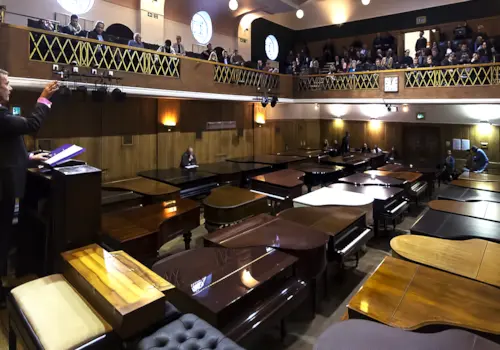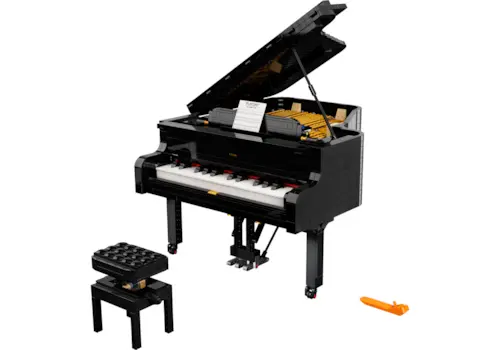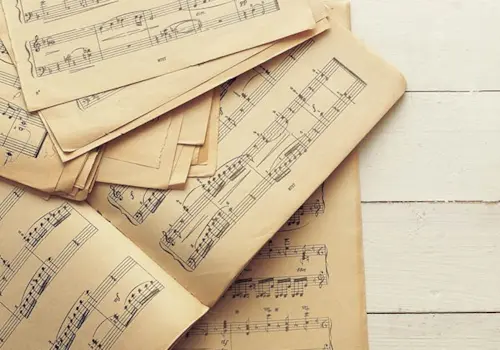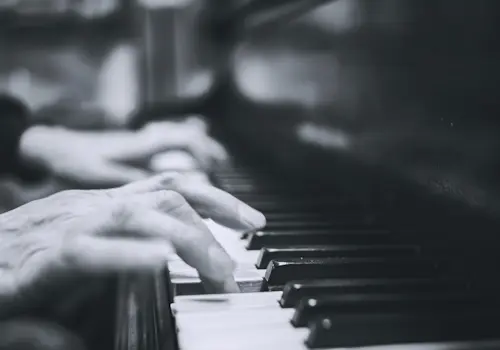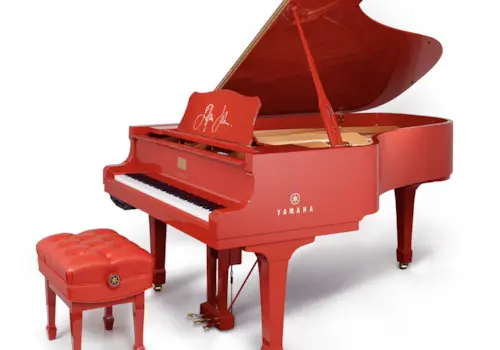October 2021 marks our 20th birthday as a magazine! We're wading back through the archives and re-posting some of our favourite interviews. Lang Lang has appeared on the cover of Pianist three times over the years; most recently for issue 118 in 2020, issue 61 in 2011, and famously for the first time in 2004 for issue 21 when he was just 21 years old. Writer Jessica Duchen was tasked with chatting to the youngster at the time, and it's a fascinating read...
by Jessica Duchen, 2004
When the young Chinese pianist Lang Lang describes his dinner the night before our interview, I can’t help thinking that it, and he, are exceptionally representative of the early 21st century. ‘I’m getting tired of restaurants, so I asked my mother if we could have some fast noodles – which we ate with French sausages, American dried beef and Japanese seaweed,’ he says. Post-modern internationalism reigns supreme.
And for Lang Lang – who at the tender age of 21 has already conquered the musical world with his combination of pianistic flair, irresistible energy and a communicative charisma that attracts to his concerts numerous young people who might not usually go to classical concerts – it reigns everywhere. He has just recorded Rachmaninov’s Second Piano Concerto and Rhapsody on a Theme of Paganini with the Kirov Orchestra under Valery Gergiev. Among his musical mentors are such luminaries as Daniel Barenboim and Christoph Eschenbach. Controversy surrounds some of his musical interpretations, but with such a pedigree behind him, Lang Lang is clearly a force to be reckoned with. His name – which, his record company insists, should always be written as ‘Lang Lang’ and not just ‘Lang’– appropriately enough translates as ‘very brilliant’.
His story began in Shen Yang, the capital of Manchuria: here he was born into a family where music was a daily part of life. His father plays the erhu (a traditional Chinese violin with two strings) and led a local Chinese orchestra, while his mother was an expert on traditional Chinese song and dance. ‘We had family concerts every weekend,’ Lang Lang says, ‘in which my grandmother and our neighbours would all play – we’d have everything from Chinese folk songs to piano trios, and the concerts used to go on for three hours. We’d invite an audience of friends, my mother would cook and our friends would bring food – it was great, just like Vienna in the 18th century! I still love that kind of atmosphere, and you find it in some music festivals where all the musicians eat together and talk a lot and have fun. It helps to make such a warm world – when you sleep, you smile.’

Shen Yang, the city Lang Lang grew up in. ©Techyan
Audiences at the Royal Festival Hall recently witnessed a touching slice of this life: acknowledging a rapturous reception after playing his concerto, Lang Lang nipped off stage and brought his father on to join him for an encore. Together, performing a Chinese folk song in their own arrangement for erhu and piano, they brought the house down. It was more than evident where the young pianist’s ebullient, natural musicianship originated: his father shares it entirely, if in a different musical medium. Does Lang Lang feel he has learned a great deal about matters of performing from his father? ‘He was never nervous about performing, and when I began to perform, at the age of five, I never thought of it as something difficult. It was not easy – but comfortable. The stage felt like my home.’
Lang Lang and his father, Guo-ren Lang, perform together at the Royal Albert Hall in 2008
‘I learned two important things from my father,’ Lang Lang continues. ‘One is discipline. There were times when things were very restricted by the state and he was not able to go out and perform, but he always kept studying hard as a musician. The other thing is that as a player of a stringed instrument, he thinks of music as if thinking of singing. Pianists need to have this view of music, because so often they have a great technique but are unable to make the sound legato the way a string player can.’
Lang Lang entered and won his first competition at the grand old age of five; four years later he began to study at the Central Music Conservatory and while a pupil there landed first prize in the junior division of the Tchaikovsky Competition in Moscow. A ‘try-out’ recital in the US in 1996 resulted in numerous invitations from American music colleges; able to take his pick, Lang Lang chose the crème-de-la-crème of conservatories and went to study at the Curtis Institute of Music in Philadelphia, where his teacher was Gary Graffman. He has graduated now, but Graffman remains a crucial figure – much more than just a piano professor. ‘He’s a fulltime teacher, in life as well as music,’ Lang Lang declares. ‘When I first went to Curtis I hardly spoke any English, but he used to take me to Chinese restaurants every weekend and to museums and art galleries. He played in China recently and there he was very funny. He said he thought there were some girls who wanted to meet me but were too shy to talk to me, so he’d help – he behaved like a matchmaker!’
Twist of fate
In 1999 Lang Lang auditioned for the conductor Christoph Eschenbach in Chicago. Eschenbach asked him which concerto he would choose to play if given an opportunity; Lang Lang, whose repertoire already encompassed no fewer than 35 concertos, named the Tchaikovsky No 1 at once. Fate then took one of those strange turns that change lives. Lang Lang flew home to Philadelphia, only to be called within days to return to Chicago to substitute for André Watts in exactly that concerto. Critics and audience alike were blown away by his performance; since then there has been no looking back.
Eschenbach remains important to Lang Lang’s ongoing musical education, as does Barenboim. ‘They are not only my teachers but also close friends, and they teach me a lot about life and how to deal with matters such as travelling and resting. Things like how to snatch a nap for ten minutes, or what foods I should try in different countries – they even tell me which restaurants to go to and what dishes to order in each one.’ Barenboim has now invited Lang Lang to perform Bartók with him in Chicago and Berlin next year. ‘This was a great idea, because I’ve never played Bartók before. He asked me to play the Second Concerto, and he will play the First. I said, “Couldn’t I do the Third, because there are fewer notes?” and he said, “No, you’re young, so you can play more notes!” But he can memorise anything. What an amazing mind he has.’
Lang Lang feels that a careful attitude towards performing during his teens has helped him to avoid many of the pitfalls of prodigyhood. ‘Being a “prodigy” can be dangerous because you are out performing, you play the same thing over and over again and you forget to learn new repertoire. After two or three years, you only know a couple of pieces, you’re very young and you have to go back to school!
'There are so many great artists today that people don't need to hear anything less. If you don't know what you're doing, go home and practise!'
‘For three years, between the ages of 14 and 17, I stopped concertising except for two or three performances a year and learned 35 concertos and eight different recital programmes. Before that, I knew how to play a lot of pieces, but not in a deep way – good perhaps, very natural, but not profound. The difference between good and great is enormous. I didn’t learn how to play “great” in three years, but certainly compared to how I played before that, it was much better. As a student I had the ability to learn a piece in two weeks and perform it right away, but I don’t know what the quality was like. I wouldn’t do that now. If you play in London or New York, the audiences are very picky. They will have heard this piece a hundred times before and if you don’t have the sense to prepare it properly, it’s pretty certain that they will not like the result. Today I prepare for at least six months for an important date, because otherwise the standard will not be high enough. There’s no need for a bad performance. There are so many great artists today that people don’t need to hear anything less. If you don’t know what you’re doing, go home and practise!’
Even if audiences are in the main ecstatic about Lang Lang’s concerts, the critics don’t always sound quite so convinced. Of his BBC Proms performance of the Tchaikovsky First Concerto in 2003, the Independent wrote, ‘Lang Lang... ducked and darted like a demented salmon, flicking accents selectively to startling effect, and making a sally of thunderous double octaves and rapid chords alternating between the hands, which brought the finale to a thrilling conclusion. This is Tchaikovsky at his crudest, so subtlety was not exactly called for.’ How does Lang Lang himself respond to such comments?
‘Last year after the Proms, it was quite a hard time for me in the UK,’ he admits.
Lang Lang performs at the First Night of the Proms, 2003
‘There were still some good reviews, but some critic said something like “this guy put the piano in hospital”! Yes, I played with more fire than usual that night: it was the opening night of the Proms, it was on TV and we were facing lots of people who might not normally go to concerts – and with that sort of atmosphere, I was getting more and more excited. I watched the video very carefully afterwards and I did find some of the tempos a little over the top. But I was playing with real emotion. It wasn’t totally right to say that I just played fast and loud for effect. ‘Also, some critics picked on my clothes, the blue-and-white Chinese silk suit – it was a little bit unusual, but I don’t see that it’s wrong. I’ll always look at what critics say and if it’s right then I’ll accept it and be very appreciative of it – if they criticise a big concert, I can put my head down, look at what I did wrong and improve it – but I don’t like it when they pick on things like clothes. I received lots of letters after that concert, letters from fans who didn’t know classical music before but had really got into it through that performance, and from school kids saying they’d really loved it. So I think that’s OK.’
Lang Lang’s website is another means for reaching out to these new audiences: ‘I didn’t want it to be something commercial, but something personal.’ Lang Lang’s ability to reach newcomers to music and especially young people has resulted in his recent appointment as a Goodwill Ambassador for UNICEF. ‘I feel very honoured,’ he declares, ‘especially as I’m rather young for it still – usually people are a little older – and yet they believe in me, they believe I could achieve something here. It’s a great responsibility – it’s helping kids and nothing can be better than that. I’ll be flying to Africa next year to play for kids there, which will be very exciting.’
That is just one of next year’s thrills. Among others will be his recital debut at the Royal Festival Hall, his debut with the Vienna Philharmonic conducted by Zubin Mehta in the great hall of the Musikverein, and recitals in Munich and at the Concertgebouw in Amsterdam. In London, he will be appearing as soloist with the London Symphony Orchestra for the first time, as part of the celebrations for the centenary of Michael Tippett’s birth (as well as the centenary of the orchestra). He’ll be playing Tippett’s Piano Concerto, which impresses him with its echoes of Beethoven’s Fourth. ‘It’s a very difficult piece, but I love the atmosphere, especially the very impressionistic way he uses the percussion, and the rhythmic complexity is fascinating. I’m really looking forward to this.’
Home again
Lang Lang is delighted with the way his career has taken off in Europe, but he is also appearing more frequently in Asia. As time goes by, he has found himself becoming, if not exactly homesick, then at least eager to go back more frequently to China. ‘I left my home town eight years ago, and now I kind of miss all those years,’ he says. ‘Before, I felt I didn’t want to stay there, I wanted to go out, to Beijing or Shanghai or America or London. Now I want to spend more time at home with my relatives, my cousins, my school friends. I just bought a new flat in Shen Yang – when I start an Asian tour, I go back to rest and to just be at home. I didn’t want to buy a new piano there, I wanted the piano I played when I was a little kid. Every time I saw my piano at home I started crying!
‘Maybe after some time away, you begin to want to find your roots. When I go back to my house in Philadelphia, I unwind, have a hot bath, watch a movie and have a good rest – I’m physically recharged by that. But when I go home to China, somehow it recharges my emotional power as well.’
October 2021 marks 20 years of Pianist Magazine! Download our latest issue (122), our birthday issue, today.


